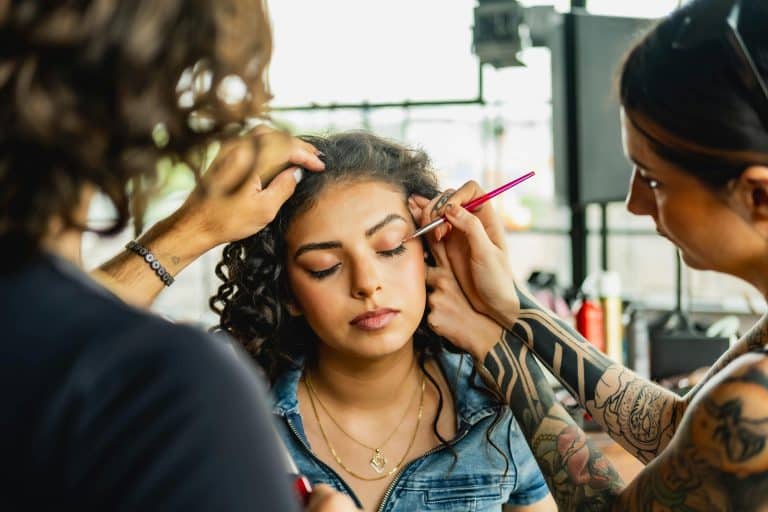Why Women Tend to Prefer Dating Older Men
You’ve probably noticed it at some point. Your coworker dates someone ten years her senior. Your cousin brings home a guy with gray at his temples while she’s barely thirty. The pattern shows up often enough that people talk about it, argue about it, and write endless think pieces trying to explain it.
Let’s get something straight first. Not all women prefer older men. Plenty date within their age bracket or go younger. But enough women do seek out older partners that we can examine why this happens without pretending everyone fits the same mold.
The Money Talk Nobody Wants to Have
Financial security matters in relationships. An older man typically earns more than someone fresh out of college. He might own property instead of renting a cramped apartment with three roommates. His car probably starts on the first try.
This isn’t about gold-digging. Most women work and earn their own money. But dating someone financially stable removes certain stresses from a relationship. You can plan vacations without checking bank balances three times. Restaurant choices expand beyond fast food. Medical emergencies won’t destroy both your savings accounts.
Some women grew up watching their mothers struggle financially after a divorce. They saw fights about money tear apart marriages. These experiences shape what they look for in partners, and financial stability often ranks high on that list.
When Career Success Becomes Part of the Attraction
Women often find themselves drawn to men who’ve already figured out their professional path. Dating an established guy means fewer conversations about career anxiety and more about actual plans and goals. Some women prefer partners who’ve moved past entry-level uncertainty, while others enjoy the energy of someone still building their career from scratch.
This preference varies wildly between women. Your best friend might want someone who owns their business or has tenure at a university, while your sister prefers dating men her own age who share similar career milestones. The appeal of professional stability shows up differently for everyone—some see it as boring, others find it attractive.
They Know What They Want (Finally)
A forty-year-old man usually knows himself better than he did at twenty-five. He’s dated enough to recognize what works and what doesn’t. He won’t play games about texting back or pretend he’s too cool to care. The emotional guessing games that plague younger relationships happen less frequently.
This self-awareness extends to life decisions, too. He’s probably not going to suddenly decide he wants to backpack through Europe for six months or switch careers to become a DJ. His personality has settled into something consistent and predictable.
The Maturity Gap Is Real
Brain development continues into the mid-twenties. Men often mature emotionally slower than women, creating a gap that frustrates many women dating within their age group. An older partner might match a woman’s emotional maturity level better than someone her own age.
This shows up in small ways. He handles conflict without shouting or stonewalling. He expresses feelings using actual words instead of grunts and shrugs. He remembers birthdays and anniversaries without smartphone reminders. These basics shouldn’t feel special, but compared to younger men who still act like teenagers, they can seem revolutionary.
Power Dynamics Get Complicated
Here’s where things get less comfortable. Age gaps often create power imbalances. The older partner usually has more money, more connections, and more life knowledge. This can lead to unhealthy dynamics where the younger partner feels dependent or controlled.
Some women actively seek this dynamic. They want someone to take charge and make decisions. Others stumble into it without realizing how the imbalance affects their relationship. A ten-year age gap at twenty feels different than the same gap at forty. The younger you are when dating someone older, the more pronounced these power differences become.
Cultural Messages Shape Preferences
Movies and TV shows pair young women with older men constantly. Leading men stay romantic leads into their sixties while actresses get relegated to playing mothers by thirty-five. These images seep into our consciousness and shape what feels normal or desirable.
Family attitudes matter too. Some cultures explicitly encourage women to marry older, established men. Parents might push their daughters toward “mature” partners who can provide stability. These messages start early and run deep, affecting partner choices even when women think they’re choosing freely.
The Biology Argument Falls Apart
People love claiming women prefer older men because of evolution and reproductive strategies. This explanation crumbles under scrutiny. If biology drove these preferences, we’d see them consistently across all cultures and time periods. We don’t.
Medieval European nobles married off teenage daughters to men their own age. Many tribal societies pair young women with young men. The older man preference appears mainly in societies where men control most resources and women need marriage for economic survival.
Personal Stories Vary Wildly
Talk to women who date older men and you’ll hear completely different reasons. One woman loves that her partner introduces her to music and movies from before she was born. Another appreciates dating someone who doesn’t spend weekends playing video games until 4 AM. A third simply fell for someone who happened to be older without seeking that trait specifically.
Age preferences change over time too. A woman might date older men throughout her twenties, then switch to partners her own age in her thirties. Or the reverse might happen. These patterns resist simple explanations because human attraction stays stubbornly complex and personal.
The conversation about age-gap relationships won’t end anytime soon. These partnerships will continue generating discussion, judgment, and fascination. What matters most is that people enter relationships as equals, regardless of their ages, with both partners choosing freely and treating each other with respect.








